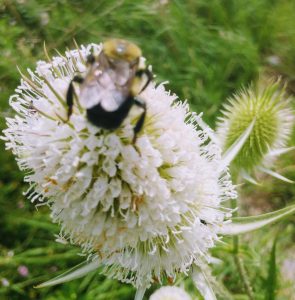4 Keep Your Work Fresh by Mixing it Up
Overview
- Burnout is a common theme in the helping field, and it’s one you should address early in your career.
- Finding creative ways to stay engaged will help avoid burnout and make the work more meaningful.

Too often, professionals whose talents could serve the helping fields are instead lost to other areas where they find one or more of the following: better pay, less stress, greater appreciation of their efforts, or the opportunity to be creative.
While we may advocate for improved employee salaries, our ability to control that is usually limited. However, what we can do is promote work environments that foster growth. For example, Google is well-known for allowing its employees to dedicate a few hours of their work week to pursuing their own pet projects. These windows of creativity often lead to healthy new ideas, and they also make the overall work environment much more appealing.
I’ve been a manager, so I know that right now the supervisors out there might be thinking an idea like this seems ludicrous. With an already thinly stretched staff working seemingly non-stop just to meet the demands of the program, how in the world could you ever find time to let employees chase dream projects and personal interests that don’t directly contribute to the agency? Or even to try on new roles for size, just to see if they are a fit?
In the day-to-day struggle of agency life, it can be difficult to see a bigger picture. To recognize the potential benefit of allowing for some variety that could re-invigorate your staff. To be willing to sacrifice even a single precious hour when you are already desperately short on them.
But I believe that offering the opportunity for staff to grow is every bit as important as their other tasks. And growth occurs by doing something new and using your brain in different ways. In another essay in this book, I argue for the benefits of structure and routine. This does not undermine those notions, as productive habits are part of all good organizations.
Employee Longevitity
We want good people in the helping fields, and we need to balance the needs of the agency with the needs of the individuals who make the run.
- Allowing time to explore personal projects within the work context can be valuable.
- Promoting creativity can go hand-in-hand with improved services.

That said, we cannot allow our employees to become robots. If this work feels monotonous and draining, then the highest quality professionals will look for other avenues. We will ultimately provide worse client care because the best ones will leave for higher ground.
In my experience, variety has been the most important element of longevity in the field. That can come in the form of different work settings, new clients, or simply side projects that are of personal interest. In extreme cases, it requires leaving an organization altogether to pursue other options.
Before workers get to the point of burnout, to where they can no longer function effectively within our agencies, we need to encourage them to re-balance their work life in order to maintain satisfaction.
One of my supervisors allowed me to develop a resource manual for an agency where I worked, even though it meant spending several hours in my office not doing direct client service. It was something I wanted to do and found interesting because it helped me learn about the services available in the community.
After a couple of weeks, I created an updated, user-friendly resource that benefited all of the counselors there. In short, it was well worth the time, although there was no promise that my mini-project would be successful. But allowing me to create it gave me some space from the more routine aspects of my job while also challenging me to think about the continuum of client care in a new way.
This intersection of personal interest, ability, and usefulness to the agency offered a mutual benefit. Over time, these “pet projects” become crucial to maintaining your own motivation in the field and developing creative solutions to agency or client problems.
Variety in our work is vitally important. We can re-energize our work by finding creative ways to expand our horizons or simply get a much-needed change of scenery. This might mean learning a new skill or treatment method; working with a new population (think about age, gender, primary problem, and setting); taking on different roles within your current position; and sometimes, even finding a new job altogether.
Whether you are brand new to the field or have been working in it for many moons, I encourage you to maintain your passion for the work by finding new ways to engage with it. And if you supervise employees in the field, try to remember the importance of improving employee satisfaction and supporting them in ways that will lead to a longer and more meaningful career in our field.
Exercises
- What is a skill or passion of yours?
- How might you be able to incorporate this into your work?

